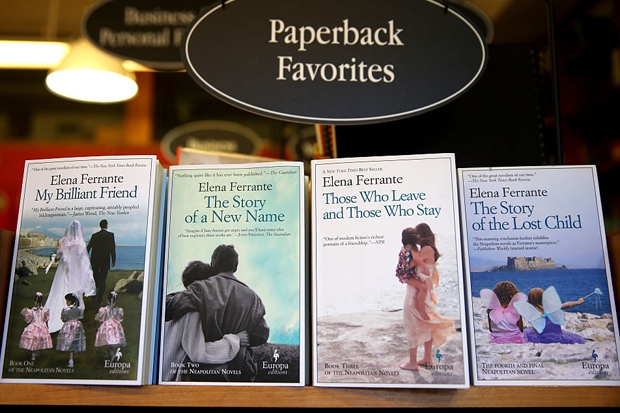It’s a brave dramatist who would seek to adapt for radio the hit novels of the Italian writer Elena Ferrante. As soon as her quartet of novels set in Naples from the 1950s onwards began appearing in English translation a few years ago they created a bestselling stir because of the unusually bold flavour of the writing and the brutal honesty with which Ferrante is prepared to expose the dark underside of female friendship and motherhood, its jealousies and bitterness, the betrayals and self-centredness. It was even rumoured that Ferrante must be a man (she has never given an interview) because no woman, surely, would be so critical of her own sex (which doesn’t explain why she is not kind to men either).
But the acclaimed adapter Timberlake Wertenbaker has taken up the challenge and her two-part dramatisation of the first book in the sequence, My Brilliant Friend, is the Sunday-afternoon classic this week and next (as part of Radio 4’s Reading Europe season). Lila and Lena grow up together in a tenement area of the city but then their lives diverge as Lena goes away to pursue a career as a journalist and novelist while Lila chooses to stay behind. There’s a good deal of plot — wife-beating, child abuse, madness, gang warfare, illicit affairs, the thumbnail pressure of the Mafioso. You could say the books are written in Technicolor prose, that it’s high-octane and rather schlocky. But what matters are the interior lives of Lena and Lila, their reactions as things happen. Ferrante never spells it out. She leaves it up to us to work out what’s really going on. This kind of delving into how we think behind how we behave can work really well on radio, but not, I suspect, with Ferrante’s particular combination of in-your-face dramatic events and essential elusiveness.
The only way to listen is to forget the books and focus on whether it works as radio. To me the background music was wrong in flavour, the child actors too English and stilted, the voices of Lena and Lila as grown-ups not distinctive enough. I wanted to be taken to the baking hot streets of Naples, but found myself rooted in London.
On In Business this week (Radio 4, Sunday night), Ruth Sunderland went back to Teesside, where she grew up, to find out whether the region has yet begun to recover from the devastating impact of unemployment in the 1980s as the steel and chemical industries went into rapid decline. Her father was one of those made redundant after having worked all his life for one company, stoking the boilers for the firm and the local economy. He was in his mid-fifties and never found another job, dying just ten years later.
Unemployment is still high in the area, Sunderland discovered, with men staying at home while their wives work in jobs that bring home much less money. But new businesses are coming in, having discovered the benefits of cheap housing and lower overheads. Other Teessiders are now returning to their home town of Middlesbrough, taking over once-grand, now-derelict properties and creating jobs in new technology companies. But it was Sunderland’s mother whose voice resonated the most, telling Ruth, that she had ‘no regrets’ that she had encouraged her daughter to leave even though this meant she was left to cope alone with her depressed and sick husband. Without a trace of bitterness or self-pity, she told us, straight from the heart, ‘And I would do it again tomorrow.’
A recent Radio Times poll invited listeners to pick their favourite voices on air. Only one actor made the list of ten men and ten women — the unmistakably brash Charles Collingwood, who plays Brian Aldridge in The Archers. Of course it’s the presenters of music and chat shows, the continuity announcers and newsreaders who should make the cut, since they let us into their lives, or at least make us feel that we know them even though we may not have a clue what they look like. They don’t work to a script. They’re the real voices of radio. But there’s not many of them these days to compare with Terry Wogan, or Patricia Hughes, the ‘utterly idiosyncratic voice’ of Radio 3 in the 1970s. In recent years it’s actors such as Adjoa Andoh, Glenda Jackson and Kenneth Cranham who have made most impression on me, taking me into whatever fictional situation they are creating purely through intonation and intention.
Brian (or rather Collingwood) is certainly not the most beloved character, nor the most distinctive, of the Ambridge cast, although many a female pulse has raced at the sound of his voice. I suspect most of the listeners who voted must have been women. My vote would have gone to Carole Boyd, who plays the unforgettable, frequently irritating, but in the end always right Lynda Snell (a character introduced by William Smethurst, the editor who saved the soap from the chop in the early 1980s and who died last month). On Sunday night Boyd had to end the episode with the immortal lines, ‘Oh no. Oh my poor brave Scruffy… He’s gone, Fallon. Scruff’s race is run.’ Her timing was perfect, her sincerity without question.






Comments